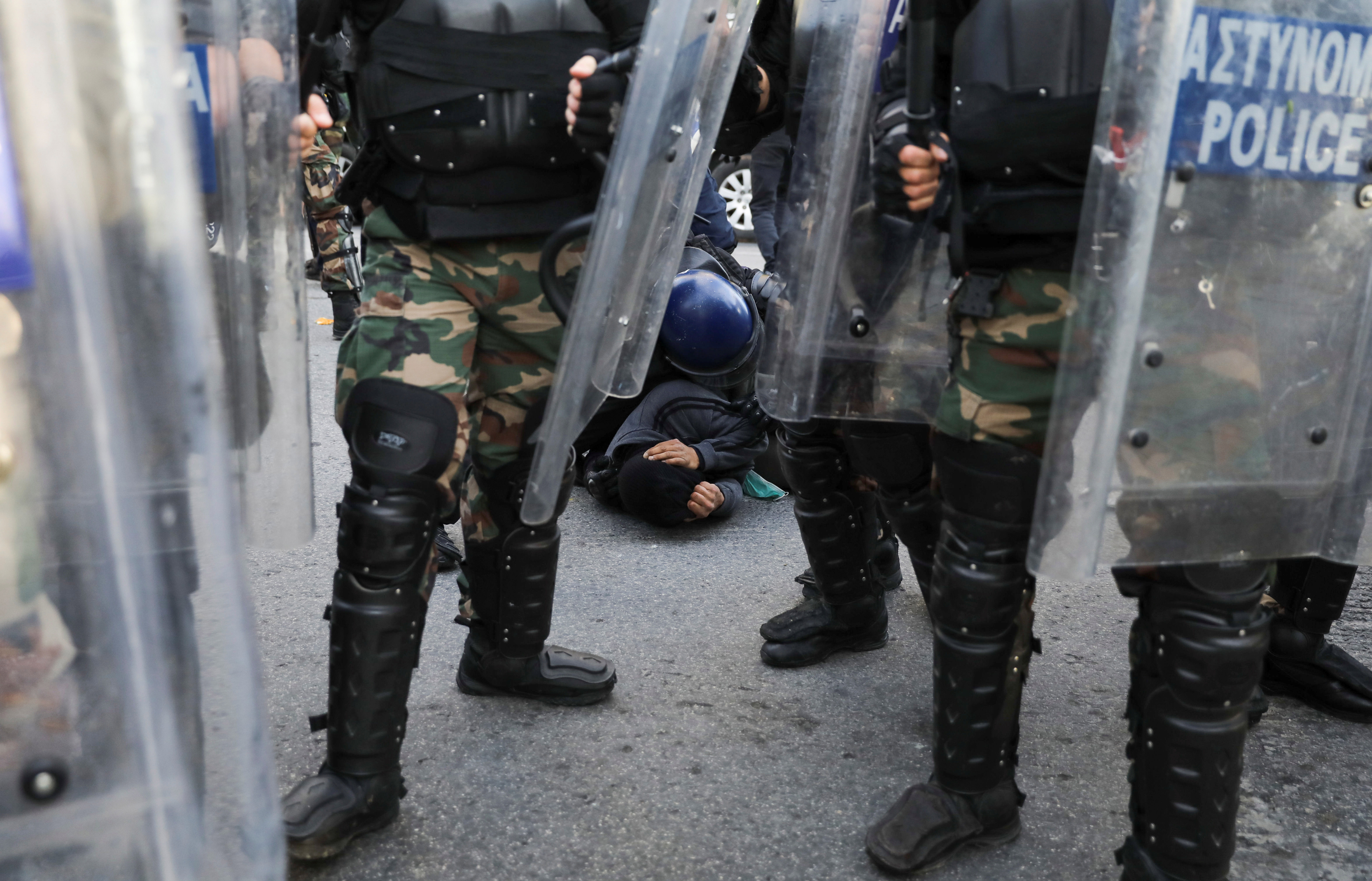Amid a public outcry over police’s heavy-handed handling of an anti-corruption demonstration in Nicosia last Saturday, Ombudswoman Maria Stylianou Lottides has asked police to explain their actions.
In a letter to police chief Stelios Papatheodorou seen by the Cyprus Mail, Lottides singled out two specific cases – that of a protester on the ground with a policeman’s boot on his head and the eye injury sustained by a young woman from a water cannon – to question what had led police to use force.
Lottides noted that given that, as of the date of the letter on February 16, nothing had come to light to indicate that the demonstration had ceased to be peaceful or that people or property had been put at risk because of it, a number of questions arose:
- Why had police made use of the means at their disposal to suppress the demonstration?
- Why does it appear that the force used was excessive and not proportional?
- How did the demonstrator come to be on the ground? Was it as a result of the actions of police and why was it deemed necessary to immobilise him?
- What led police to intervene to the extent that they did?
Lottides noted that under the constitution, which takes precedence over all laws, the right to peacefully assemble is safeguarded and can only be limited for reasons of public order, public health or to protect rights and freedoms.
The question arises whether police felt they needed to resort to force in order safeguard those three rights, and in any case, such force should have been proportionate, she added.
“These questions must be answered in the light of the images which have been made public and which show disproportionate and excessive force,” she said.
Moreover, even if the need to restrict the right of assembly for reasons cited in the constitution does arise, this does not in any way justify the use of force when the gathering is peaceful. Should the protest cease to be peaceful and there is a risk to people, excessive force is not justified “but must be proportionate”, the letter said.
“The boot on the head is not allowed in democratic societies, the boot on the head brings to mind barbarity,” she concluded.







Click here to change your cookie preferences